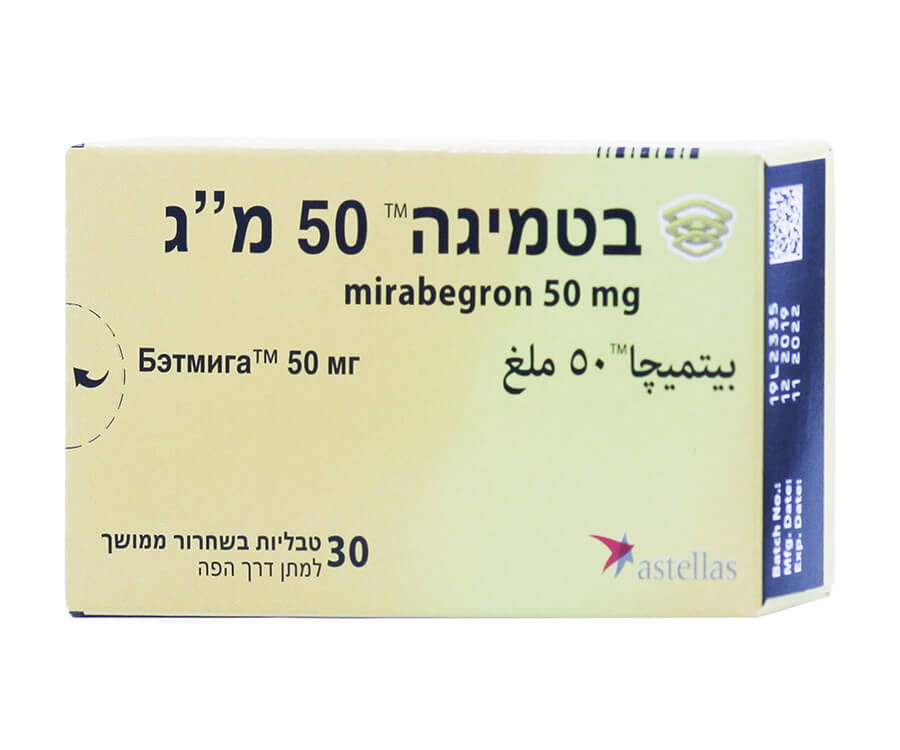Myrbetriq (generic name: mirabegron) is a new drug that is primarily prescribed to treat the symptoms of an
overactive bladder, including incontinence (loss of bladder control), a strong need to urinate right away, or a frequent need to urinate. It may also be prescribed to treat neurogenic detrusor overactivity, a bladder dysfunction frequently observed in children with conditions such as multiple sclerosis (MS) and spinal cord injury (SCI).
Mirbagron acts on receptors in the bladder (
beta-3 adrenergic receptors). Activating these receptors leads to the relaxation of the bladder and the relief of the symptoms characteristic of an overactive bladder.
Studies have reported that mirabegron or other selective β3‐Adrenergic Receptor (β3AR) agonists could help treat humans by promoting adipose tissue (AT) “beiging,” which could perhaps help in the treatment of metabolic disorders like obesity and type 2 diabetes (T2D)
Dosage
Take Myrbetriq only as prescribed. If a dose is missed and less than twelve hours from the scheduled time for the next dose, take it as soon as possible. However, if it is more than twelve hours, skip the missed dose and return to the regular dosing schedule.
The extended-release tablet should be swallowed whole and with water. Do not crush, break, or chew it. Adults can take the tablet with or without food. Children should take the tablet with food.
Storage
Store this medication away from the reach of children, in temperatures below 25°C / 77°F. Please read our friendly tips on handling medicine safely.
This text is for informational purposes only. Please consult a doctor or pharmacist before using any medication.
Read the information leaflet that comes with the medication.
Most people who use Myrbetriq do not experience any negative side effects. Doctors prescribe Myrbetriq because they assess that the benefits that such treatment yields outweigh any likely unwanted effects.
Some of the side effects of Myrbetriq that have been reported include:
- Bladder pain; bloody or cloudy urine; frequent urge to urinate; difficulty, burning, or pain when urinating
- Blurred vision; dizziness; headache; nervousness
- Irregular heartbeat
- Lower back or side pain
- Pounding in the ears
If these side effects do not clear up within a few days or worsen, consult a healthcare provider or pharmacist.
There are also some rare but more serious side effects. In these cases, consult as soon as possible with a doctor. The reported side effects include vision disturbances, tearing and eye pain, vomiting, lower abdominal or stomach pain, and nausea.
Overactivity of the bladder is a common condition that crops up in old age but may appear at any age. Overactive bladder is a condition in which bladder muscles contract uncontrollably and cause frequent urination. This creates an urgent need to urinate and an inability to control urination in adults.
Both men and women can suffer from this condition, but women tend to suffer more often than men. The symptoms of this phenomenon are frequent urination both day and night and a sudden urge to urinate that is difficult to control.
In children three years of age and older, the condition known as neurogenic detrusor overactivity produces a loss of bladder control caused by brain, spinal cord, or nerve problems or multiple sclerosis.














